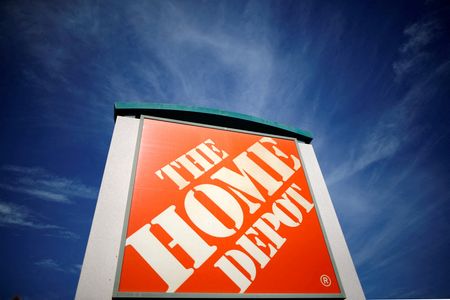The Goods Unite Us platform has stirred up strong reactions among consumers over Home Depot’s political donations, with some pledging to switch their loyalty to Lowe’s. However, this pivot is proving to be less straightforward than expected. While Lowe’s may seem like a “clean break” for shoppers wanting to avoid Home Depot’s GOP ties, digging deeper reveals that Lowe’s also donates to Republicans—and even features programs like veteran-designated parking spaces, which some view as a nod to conservative-leaning values.
It’s a tangled web of corporate politics, consumer loyalty, and social media outrage. According to Goods Unite Us, Home Depot ranks among the top 25 companies contributing to conservative causes, with 60% of its political donations reportedly going to Republican candidates or groups. The company also has notable ties to conservative-leaning Supreme Court decisions, a revelation that has triggered backlash, particularly among progressive consumers. Some reviewers on the app expressed their dismay by vowing to take their business to Lowe’s, while others noted their support for Home Depot’s policies like veteran hiring initiatives.
Lowe’s, however, isn’t exactly apolitical. It has a more balanced donation split—40% to Democrats and 60% to Republicans—but this still doesn’t fully align with the anti-GOP sentiment driving some shoppers to boycott Home Depot. The discovery that Lowe’s also engages in political contributions has left some consumers feeling betrayed, while others shrug it off as business as usual in corporate America.
The divide in reactions is fascinating. For every “I’ll never shop there again” post, there’s a glowing review from someone praising their local store’s service or community support. Reviews like those highlight the friction between personal ethics and everyday convenience. Home Depot, for example, garners points for its strong veteran support and local employee impact, while Lowe’s earns kudos for a similar ethos but with slightly less visible political baggage.
This saga illustrates the complexities of shopping with your values in mind. As consumers grow more politically conscious, they’re scrutinizing not just products and prices, but the political and social ideologies of the companies behind them. However, in a world where corporations almost universally engage in political spending, finding a “pure” option can feel like chasing smoke.
Ultimately, this debate underscores a broader issue: should consumers focus on individual actions like boycotts, or should they push for systemic changes, like campaign finance reform, to address the root causes of corporate influence on politics? Until then, the Lowe’s vs. Home Depot debate will continue to divide shoppers—one paint sample and parking spot at a time.

